Premier Private Universities & Colleges in Malaysia to Study Culinary Arts
Written by EduSpiral Consultant Services For more information contact 01111408838
Culinary arts is perfect for people who desire to be a part of a dynamic and rewarding career. People who love people, work well with stress, creative solution providers and always on the move are perfect candidates to study at top culinary schools in Malaysia.
The culinary arts has been gaining its due recognition and chefs can have very successful careers. Celebrity chefs such as Chef Wan, Jean-Georges Vongerichten, “Naked Chef” Jamie Oliver, Nigella Lawson, Bourdain, Alain Ducasse and Rick Stein have increased the awareness of successful culinary careers.
Students after SPM or O-Levels wanting to pursue a top culinary arts programme at the university in Malaysia can go for the Foundation programme or Diploma in Culinary Arts. Students after SPM or O-Levels can go for the 1-year Foundation course with 5 relevant credits and then enter into the Degree programme for 3 years.
Students with a minimum of 3 credits can go for the Diploma in Culinary Arts for 2.5 years before entering into Year 2 of the Degree programme for another 2 years. If you are sure that you want to study culinary arts, then you can go for the Diploma, if not, go for the Foundation course.
Top Universities & Colleges in Malaysia offering the Culinary Arts Programme
- KDU University College Utropolis Glenmarie
- Berjaya University College of Hospitality
- KDU Penang University College
- Le Cordon Bleu
- Taylors University
- YTL International College of Hotel Management
- UCSI University
- HELP College of Arts & Technology
- Nilai University
- Disted College Penang
Studying at the Best Private Universities and Colleges in Malaysia for Culinary Arts or Patisserie
Most culinary art schools in Malaysia teach a variety of cuisines and preparation techniques. Instruction ranges from the fancy haute French style cuisine to Italian style cuisine or Asian fusion styles.
This is perhaps the greatest strength of Malaysian cuisine: so many diverse backgrounds and foods come together in the kitchens and restaurants of Malaysia.
At the best universities and colleges for culinary arts in Malaysia you'll be taught how to make mouthwatering food, and how to combine this with the business side of managing a restaurant. You will find that the culinary, hospitality and tourism industries possess high job prospects for graduates with the boom in tourism and increase in affluence of society. Therefore, the job prospects for the various areas of culinary arts are very positive not only locally but globally.
Who should study Culinary Arts, Hospitality & Tourism in Malaysia
The culinary, hospitality, tourism and services management industries are ideal for people who enjoy experiential learning and
being able to apply their knowledge gained immediately to practice. Students who possess the characteristics below are perfect candidates to study at top culinary schools in Malaysia. They are people who:
- Love to cook
- Enjoy meeting new and exciting people
- Enjoy traveling and entertainment
- Are creative thinkers
- Are hands-on workers
- Are critical thinkers
- Are service oriented
- Provide quick and creative solutions to different kinds of challenges
- Enjoy being a part of a exciting environment
- Work in flexible hours
- Love to explore new and different cultures
Plus points for qualified chefs in Malaysia
- Able to travel round the world
- Able to obtain jobs worldwide easily
- Able to get extra points in the application for Permanent Residency (PR) status in certain countries like Australia, UK, USA or Europe
- Able to network with people from all levels
Nature of the work for chefs in Malaysia
- Long hours
- Weekend work may be required
- High pressure at peak periods
- Service oriented – provide a high level of services
- Customer emphasis – able to cater and adapt customer’s needs and requests
- Dynamic – on-the-go
- Able to adapt to changes and stress
It is important to choose an outstanding culinary arts college or university in Malaysia that has years of experience or that can provide you with excellent exposure to the industry. The best colleges and universities in Malaysia in culinary arts can help prepare you with the necessary knowledge and skills for a successful career.
Be a part of the vibrant culinary industry!
The culinary industry is ideal for students who possess a flair for creativity, desire to please peoples’ palates, provide solutions, able to handle pressure, entrepreneurs and a passion for cooking.Malaysians have a love affair with the culinary world. As Malaysians become more affluent, our taste buds become more sophisticated with a ravenous desire to consume more exotic dishes.
An executive chef oversees the whole kitchen in recruiting and managing staff, work delegation, stock control, devising menus, and dealing with suppliers. The rest of the down liners will help in food preparation, assist in planning menus, organizing a section, maintaining hygiene standards, dealing with a particular kind of food, and others.
At any good culinary institute, students will acquire important skills in culinary, organising and
Being well organized is key to running a successful kitchen. Ordering, scheduling, food costing, and dealing with suppliers are just some of the work involved. Chefs need to work in a team and as an Executive Chef, he or she will need to manage the kitchen staff well. The intricacies of motivating staff and getting the best out of them are important. Ultimately, the Chef will become a mentor to other chefs and having people skills is important to impart his or her skills to the next generation.
The Culinary Industry in Malaysia is growing therefore there is an increased demand for professional chefs
The culinary industry is ideal for students who possess a flair for creativity, desire to please peoples’ palates, entrepreneurial and of course, a love of food.
There are four basic skills that every chef uses throughout their career:
1. Technical
These skills are the foundation of a chef’s talent and success - knife skills, cooking methods, timing, mise en place, and being able to cook on the line gracefully even during the peak hour.
2. Culinary
Most chefs have a good palate to begin, but training for the nuances of flavor and seasoning, new flavor combinations, creative plates and presentations, delving deep in to a cuisine culture all take training and practice.
3. Organisational
Prior planning is important in a busy kitchen. Organising the menu, ingredients, staffing and kitchen will ensure a smooth running with less stress. Organising also helps in conducting business effectively (ordering, scheduling, food costing etc.).
4. Managerial
Having a keen understanding of human behavior and how to motivate them is important as one gains more responsibility. A good chef understands how to work with people and get them to work for him/her.
These skills are the highest level because they involve sharing knowledge and skills with those working for you.
The most often-seen method is training, but ultimately being a mentor to a cook and to develop their career is the highest skill a chef can attain.
Job positions for chefs in Malaysia
On a typical day a chef will:
- create recipes;
- measure, mix, and cook ingredients according to recipes;
- direct the work of other kitchen workers;
- estimate food requirements;
- order food supplies;
The Executive Chef is the highest position in the industry. Their primary function is to manage the food preparation and cooking for a restaurant. Often, an executive chef will be responsible for a chain of restaurants or other food service establishments.
Some of the work involved are planning menus, estimating food requirements and costs, and supervising the work of sous-chefs, chefs and cooks, and other kitchen staff. They also take care of the hiring and recruitment of kitchen staff. Depending on the occasion, some executive chefs may cook regularly while others may cook for only for special occasions.
Executive chef In most full-service restaurants and institutional food service facilities, the management team consists of a general manager, one or more assistant managers, and an executive chef.
- Oversee kitchen operations, planning menus, quality control and presentation of meals.
- Responsible for all food preparation activities, estimate food requirements and costs, stock control, and dealing with suppliers.
- Supervise the work of sous-chefs, chefs and cooks, and other kitchen staff.
- Recruiting and managing staff, work delegation, and adherence to high service standards.
- Often, will be responsible for different kitchens of a hotel, a chain of restaurants or other food service establishments.
- Reports to an executive chef and is responsible for the daily operations of a single kitchen.
- Sous-chefs are like front line managers where they supervise the work of chefs, cooks, and other kitchen workers. They often demonstrate new cooking techniques, recipes, and usage of equipment. In some kitchens, sous-chefs may plan menus, order food and kitchen supplies, and prepare and cook meals and specialty foods.
- They are managerial chefs on the front line where they supervise the work of chefs, cooks, and other kitchen workers
- Demonstrate new cooking techniques, recipes, and equipment to the kitchen staff.
- May plan menus, order food and kitchen supplies, and prepare and cook meals and specialty foods.
- Basically, prepares, season and cook a wide range of foods
- In general, chefs measure, mix, and cook ingredients according to recipes, using a variety of pots, pans, cutlery, and other equipment, including ovens, broilers, grills, slicers, grinders, and blenders.
- Chefs also are responsible for directing the work of other kitchen workers, estimating food requirements, and ordering food supplies.
- Each chef or cook works an assigned station that is equipped with the types of stoves, grills, pans, and ingredients needed for the foods prepared at that station. Job titles often reflect the principal ingredient prepared or the type of cooking performed—vegetable cook, fry cook, or grill cook.
- Responsible for making all the sauces or dishes cooked in a particular sauce or gravy.
- Sauciers must be highly knowledgeable when it comes to the possible mixtures and permutations that can create a fine sauce.
- The chef is in charge of all cold dishes such as appetizers, desserts, pates, cold sauces, salads, dressing and sandwiches. Garde mangers are often skillful in using leftovers to create new dishes.
- The chef who, in the classic French kitchen brigade system, is responsible for all cold foods.
- "Garde Manger" is a French term for the pantry area where cold dishes are prepared and stored — foods like appetizers, desserts, pates, cold sauces, salads, dressing and sandwiches.
- Pastry chefs have the enviable job of creating a multitude of baked good and confections from cookies and cakes to chocolates, petitfours, beignets… any dessert you can think of! The Pastry Chef has to be In creative and well-versed in dessert tastes and flavors.
- Create a multitude of baked goods and confections — everything from cookies and cakes to chocolates Work involves the preparation of pastries, such as cakes, candies, chocolates, and other specialty dessert items in retail and commercialsettings.
- Pastry chefs with sound business skills can move on to opening their own pastry shop or bakery.
- Positions in this area require a deep appreciation and understanding of wines, spirits, liqueurs, beers, coffee, tea and other non-alcoholic beverages, including production, bottling, storage, distribution, marketing and pairing with food.
- The position requires a high level of innovation in beverage products and involves sales skills.
- They may work with vineyards, fine dining restaurants, hotels, cruise lines, chain restaurants or managing multiple high volume accounts for regional spirits distribution companies.
- Many fine restaurants with extensive wine lists employ sommeliers — wine experts who recommend wines to customers that are most appropriate for their meals.
- Drinking and judging wine may sound like an ideal job, but it's difficult work that requires extensive practice and knowledge.
- Many take classes at the best culinary schools that teach the chemistry behind making wine, how to taste the wine, and how to judge its colour, aroma, flavour and body.
- Good senses of taste and smell are essential and a knowledge of food chemistry can be helpful.
- Works in the kitchens of schools, cafeterias, businesses, hospitals, and other institutions. For each meal, they prepare a large quantity of a limited number of entrees, vegetables, and desserts.
- Combine culinary skills with knowledge of food science to develop recipes and test new formulas, experiment with flavours and eye appeal of prepared foods.
- Test new products and equipment for chain restaurants, food growers and processors, and manufacturers and marketers.
- The job basically entails the planning of the menu and pricing for a meal to be served at the premises of the client. A good catering company can ensure the success of an event.
- They will work with the clients planning the food, decorations, entertainment and location of the function while ensuring profitability.
- Caterers may specialize in birthday parties, official opening of shops, official launching of products, weddings, seminars, conferences and other functions.
- Others combine their culinary education with their personal and professional interests, such as writing or photography, which can lead to careers in food writing for newspapers, magazines or cookbooks. And, of course, there is also food styling, the profession that makes food look its best and/or authentic in front of a camera to produce both still-pictures and video productions that we see of food.
- Grocery and specialty food stores employ chefs, cooks, and food preparation workers to develop recipes and prepare meals for customers to carry out. Typically, entrees, side dishes, salads, or other items are prepared in large quantities and stored at an appropriate temperature.
Career opportunities in Culinary Arts in Malaysia
- Restaurants
- Bakeries
- Cafes and pubs
- Fine dining restaurants
- Boutique restaurants
- Fast food
- Hotels & resorts
- Spas
- Airlines
- Leisure such as theme parks
- Gaming & casinos
- Cruise Lines
- Food service operations in hospitals or universities
- Managed services
- Catering
- Food Media
- Private clubs
- Conference & exhibitions
- Grocery stores
- Spas
- Distributors
- Wineries
- Hypermarket chains
- Entertainment industry such as celebrity chef
- Education – teaching at colleges or universities
Types of positions in the Culinary jobs in Malaysia
- Expediter
- F&B manager
- Restaurant manager
- Outlet Manager
- Banquet & Catering Sales Manager
- Restaurant/Café owner
- Sommelier/Wine steward
- Banquet Chef
- Fish Cook
- Chef de Garde Manger
- Kitchen Manager
- Meat Cutter/Butcher
- Pasta chef
- Rounds/Swing chef
- Saucier
- Saute chef
- Vegetable chef
- Personal chef
- Demi Chef
- Commis 1,2/Junior chef
- Pastry chef
- Chef Tournant
- Line cooks
- Chef de garde manger
- Chef de Partie
- Assistant cook
- Chef-de-cuisine,
- Junior sous chef
- Sous chef
- Food & Beverage manager
- Restaurant manager
- Food Service Outlet Manager
- Banquet and Catering Sales Manager
- Food Nutrition Balance Counselor in hotels or hospitals
- Restaurant/Café owner
Career opportunities for Culinary Arts Graduates in Malaysia
Culinary Arts graduates can find work in these industries - hotels, resorts, restaurants, exclusive clubs, cruise liners, airlines, hospitals, schools, corporate facilities, institutional foodservice, etc.EduSpiral Consultant Services- Your Personal Online Education Advisor
Established since 2009, EduSpiral Consultant Services helps provide information and counselling on courses and universities in Malaysia & Singapore.These universities and colleges are chosen by EduSpiral because they represent the best in their fields in Malaysia and affordable. EduSpiral provides in-depth information and counseling on their courses so that students are able to make the right choice.
If you are still not sure what to study, please contact us and we will send you a free EduSpiral Career Assessment Form.
Please contact us for more details.
- Whatsapp: +601111408838
- Wechat/Line: EduSpiral88
- Instagram: www.instagram.com/eduspiral
- Youtube: www.youtube.com/eduspiral
- Follow EduSpiral: www.twitter.com/eduspiral88
- Be my friend: www.facebook.com/eduspiralsik
- Like EduSpiral: www.facebook.com/eduspiralcs
- Message me: info@eduspiral.com
- Website: www.eduspiral.com
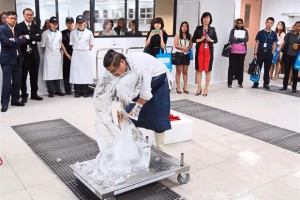
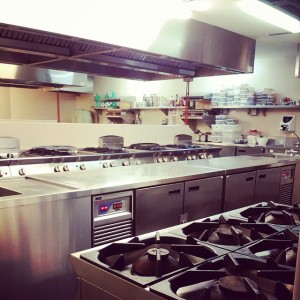
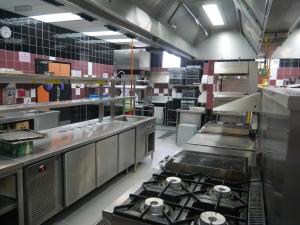


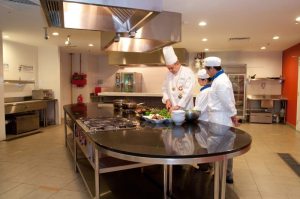
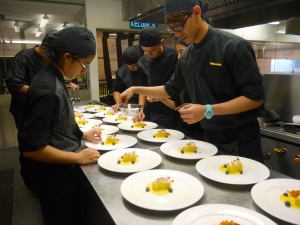
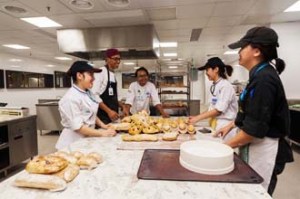
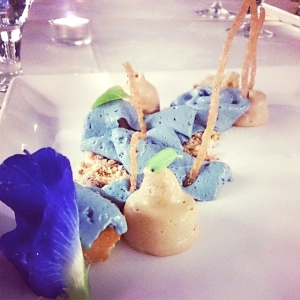
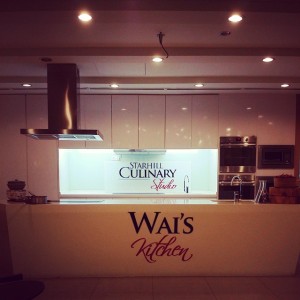
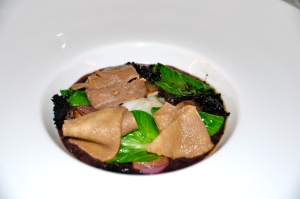
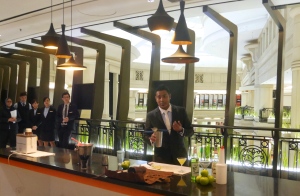
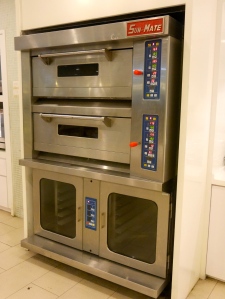
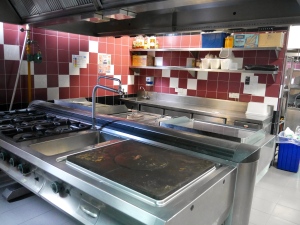
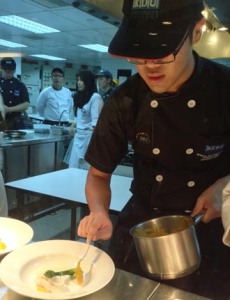
No comments:
Post a Comment
Please leave your comments and questions